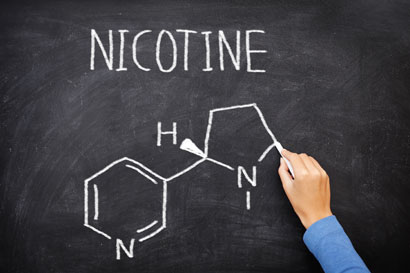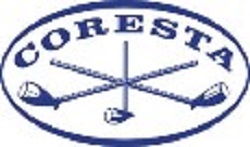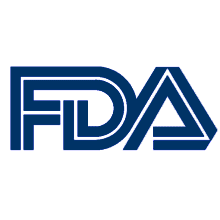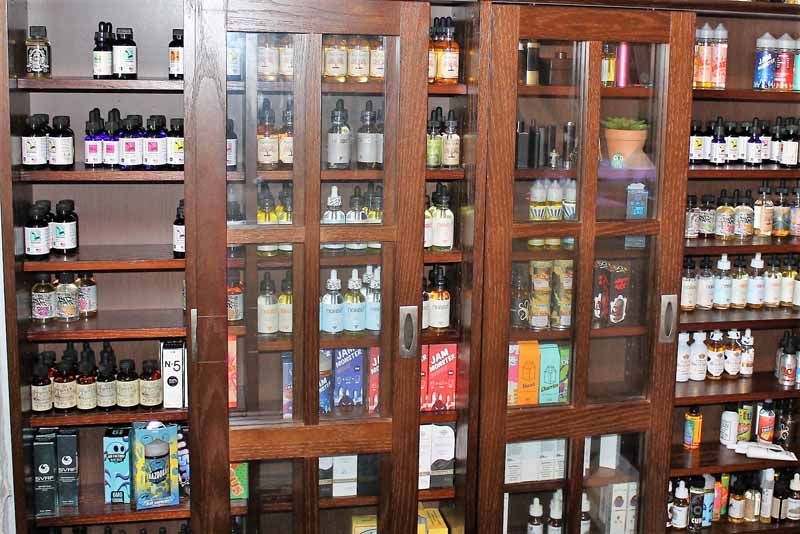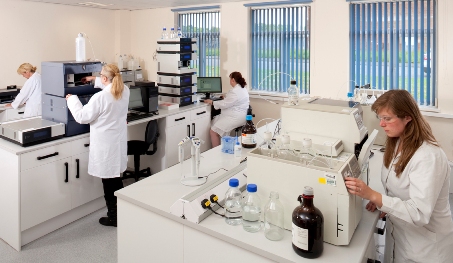Imperial Brands yesterday published a report giving – for the first time – an overview of the progress it is making in respect of next generation products (NGPs) and outlining its views on a number of key related issues.
The report, From Tobacco to Something Better, is expected to be updated in the future to keep it relevant to what is a quickly-evolving sector.
The 17-page report looks at Imperial’s NGPs timeline, the public health opportunity presented by NGPs, the risk spectrum, products, including snus and heated-tobacco devices, vapor research and development, and regulation.
In an introduction, Imperial’s chief executive, Alison Cooper (pictured), said Nerudia, Imperial’s innovation arm, was “focused on creating a compelling pipeline of innovative products and its entrepreneurial spirit is proving to be a winning addition to our own vibrant culture”.
“In assembling the right components for success, we have deliberately favoured the vapor (EVP) opportunity as it’s by far the largest NGP category,” she said.
“With the technology and scientific insights available to us today, we have never been better placed to be able to transition smokers from cigarettes to something better.
Meanwhile, Matthew Phillips, Imperial’s chief development officer, is quoted in the report as saying that tobacco will be Imperial’s core business for many years to come, generating the funds to invest in NGP.
“But over time that balance will shift and you will see NGP making a material and sustainable contribution to our financial delivery, as we accelerate the transition of smokers to something better,” he said.
Category: Science

Imperial – a better offer

GFN registration open
With about three weeks to go until the start of the fifth Global Forum on Nicotine, the organisers say that there is still time to register for what is scheduled to be the biggest Forum yet.
The 2018 Forum will include the event’s biggest-ever conference program with more than 55 speakers, the second International Symposium on Nicotine Technology, and a film festival.
It is scheduled to be held at the Marriott Hotel, Warsaw, Poland, on June 14-16.
Science losing to ideology
Calling electronic cigarettes toxic and unsafe is absurd, according to Alex Berezow, senior fellow of biomedical science with the American Council on Smoking and Health.
In a piece published on the Council’s website, Berezow made the point that, not that long ago, if a company had invented a far safer way to deliver nicotine to addicted smokers, politicians would have been celebrating.
But today, partisanship had ruined just about everything.
‘I knew something was amiss when I spotted an advertisement in a Seattle light rail car,’ Berezow said. ‘The ad warned potential vapers not to be “fooled” by e-cigarettes, which it said were toxic, addictive, and unsafe. Yes, they are addictive (because they contain nicotine), but calling them toxic and unsafe is absurd. Compared to regular cigarettes, vaping devices are 95 percent safer, according to the UK’s NHS.
‘In other words, if Seattle smokers follow their own public health department’s advice, they are likelier to die. Why on earth would a public health department give such terrible advice? Because the debate over vaping isn’t about science; it’s about ideology.’
Springtime for CORESTA
CORESTA, the Co-operation Centre for Scientific Research Relative to Tobacco, is returning to China for its 2018 Congress.
Twenty years after the first Congress to be held in China was hosted by the China National Tobacco Corporation (CNTC) in 1988 in Guangzhou, and 10 after the 2008 Congress was held in Shanghai, CORESTA is again turning to China; this time to the ‘world capital city of tobacco’, Kunming.
Kunming, which is the capital of Yunnan Province, is known also as the City of Eternal Spring – a reference to its year-long mild, sunny climate.
The Congress is due to be hosted by the CNTC and held on October 22-26 at the recently-built Intercontinental Hotel.
The theme of the 2018 Congress is Science and Innovation: addressing the needs.
According to a recent CORESTA press note; in line with this theme, CORESTA’s Scientific Commission wants the event to be an opportunity for delegates to share their experience with the broad scientific community, within and beyond the tobacco perspective.
‘Workshops will be arranged to foster open dialogue on crop protection, biotechnologies, product risk assessment and biomarkers,’ the note said.
‘This approach will provide valuable information to all stakeholders in the increasingly challenging regulatory environment.
‘Latest updates and scientific achievements and findings will be presented to the benefit of both experienced and new scientists.
‘A CORESTA Congress is always an invaluable opportunity for building links and networking between generations of scientists.’
The Congress program is due to be made available at www.coresta.org at end of June.
CORESTA is an association whose purpose is to promote international co-operation in scientific research relative to tobacco and its derived products.
The association organizes yearly conferences (congresses are held every two years) where hundreds of tobacco breeders, agronomists, biologists and plant experts on the one hand, and physicists, chemists, analysts, toxicologists, finished-product-related experts, regulators and authorities on the other hand, meet to present, share and discuss studies and findings.
CORESTA activities cover all aspects of tobacco, from the crop to the usage of the derived products.
During the sessions, CORESTA working groups also present reports on their work, achievements and projects.
Workshop places limited
The Inter-University Consortium for Political and Social Research (ICPSR) is due to host a Population Assessment of Tobacco and Health (PATH) Study Data User Workshop on Biomarker Restricted-Use Files, according to a note issued by the US Food and Drug Administration’s Center for Tobacco Products (CTP).
The workshop will be held at the ICPSR in Ann Arbor, Michigan, US, on August 13-14.
‘The workshop will introduce participants to the PATH Study, focusing on the study design, data collection procedures, adult instrument, and variables,’ the note said.
‘With this information, participants will be able to formulate research questions appropriate for the PATH Study biomarker data.
‘In addition, participants will gain a thorough understanding of the content and organization of the biomarker data files, interview data files, and weighting files.
‘Participants will also gain knowledge and hands-on experience in linking biomarker data files with interview data files and weighting files, as well as in working with the data and understanding the weighted results.’
The CTP said the workshop was free to attend, but that admission was competitive and that applications were due by Friday, May 18.
CORESTA-papers deadline
The organizers of the 2018 CORESTA Congress have issued a reminder about the deadline for the submission of papers.
The Congress, whose theme is Science and Innovation: Addressing the needs, will be hosted by the China National Tobacco Corporation (CNTC).
It is due to be held on 22-26 October at the Intercontinental Hotel, Kunming, China.
The CORESTA Secretariat said that the call for papers, for which the deadline is May 16, had been published on the CORESTA website.
Direct access to the abstract submission system was available through the CORESTA website.
The announcement said authors would receive immediate receipt messages by email to confirm the successful submission of their abstracts and would be informed of the CORESTA Reading Committee’s selection towards the end of June.
Promoting innovation
The European Union needs to promote and protect innovation, research and development, according to MEP Fulvio Martusciello, who is a member of Parliament’s economic and monetary affairs committee.
Writing an opinion piece in the Parliament Magazine, Martusciello said that such a policy would not only send the appropriate positive signals to investors and provide the business community with a dependable space to develop successfully, it would also have a positive impact on high quality employment creation and on consumers’ satisfaction.
‘Vaping products embed significant research and development,’ he said. ‘These are highly innovative products and represent a potentially safer category for consumer use.
‘Relying on the voice of science, regulators should adapt to new developments, respect scientific advice and regulate such innovative products in an appropriate way.’
Martusciello said he was in favour of holding a parliamentary debate on how best to regulate these products in the EU and on how to ensure that appropriate EU standards were in place.
Vapers to have their say
Representatives of the UK’s vaping industry and consumers are due to give evidence later today to the House of Commons’ Select Committee on Science and Technology.
The Committee, made up of a cross-party group of MPs, is scheduled to start its meeting at 17.05.
It has been examining the impact of electronic cigarettes on human health, and, as part of that examination, their effectiveness as a stop-smoking tool.
It has examined also the regulatory landscape.
John Dunne (pictured), director of the UK Vaping Industry Association (UKVIA), will be giving evidence in front of the Committee alongside Fraser Cropper, chairperson of the Independent British Vape Trade Association and Sarah Jakes, chairperson of the New Nicotine Alliance.
“This is a great opportunity to present the industry’s perspective on how regulation impacts the sector on a day to day basis, both the good and the bad,” Dunne was quoted as saying as part of a press note issued by the UKVIA yesterday.
“E-cigarettes are valuable tools which will reduce the number of people smoking conventional cigarettes. Yet, despite the consensus from leading health bodies that vaping is likely to be at least 95 percent less harmful, there is still a huge amount of misinformation out there.
“We are hoping that our evidence … will inform MPs on how they can direct regulation to help us in our mission to inform the 7.6 million smokers in the UK – and the 40 percent of smokers who haven’t even tried it – of the potential health benefits of switching to vaping.”
The UKVIA said the UK had become an early adopter of vaping technologies, with the nation’s smokers keen to adopt an alternative to smoking.
‘By 2012 there were already 700,000 vapers in the UK and in 2017 this figure reached nearly three million people, over half of whom have given up smoking entirely.’
CORESTA reporting
The CORESTA Secretariat has given details of the documents that it has published and the projects that it has launched since March.
The following documents have been published and can be downloaded from the Documents section of the CORESTA website at www.coresta.org.- Report “Use of Capillary GC Columns for the Determination of Water in Cigarette Mainstream Smoke”
(2018-03-13) (RAC-157-CTR) - Report “10th Collaborative Study (2017) for Physical Parameters of Cigarettes and Filters”
(2018-03-13) (PTM-122-CTR) - Report “2017 Collaborative Study on Ammonia and Benzo[a]pyrene in Tobacco Products”
(2018-03-19) (TTPA-150-1-CTR) - Method No. 79 “Determination of Ammonia in Tobacco and Tobacco Products by Ion Chromatographic Analysis”
(2018-03-19) (TTPA-150-2-CRM-79) - Method No. 82 “Determination of Benzo[a]pyrene in Tobacco Products by GC-MS”
(2018-03-19) (TTPA-150-3-CRM-82) - Report “2015 Collaborative Study on Ammonia in Mainstream Cigarette Smoke”
(2018-03-23) (SMA-046-2-CTR) - Method No. 87 “Determination of Nicotine in Tobacco Products by GC/MS”
(2018-04-27) (RAC-TTPA-056-2-CRM-87) - Report “Proficiency Study of Menthol in Cigarettes and Cut Filler”
(2018-05-03) (RAC-116-0-CTR)
PROJECTS
A full list of active projects is available on the CORESTA website under the Study Groups/Active Projects section:- Project 178: EVAP SG – Technical Guide for Designing E-Vapour Products and E-Liquids Stability Studies
- Project 180: CORESTA Board – Presentation at the Rhodia Acetow 11th Cigarette Filter Colloquium in Freiburg, Germany, April 2018
- Project 181: IVT SG – Presentation at the 2018 Genetic Toxicology Association Meeting in Newark, DE, USA, May 2018
- Project 182: PUB SG – Factors to Consider in Arriving at Puffing Regime to Represent Intense ENDS Use (commentary for Journal publication)
- Project 183: CORESTA Agro/Phyto – Revision Guide No. 13 – Guidance for Sampling the Tobacco Leaf Supply Chain
- Project 184: EVAP SG – Proficiency Study on the Determination of Metal Compounds in E-Liquids
- Project 185: AA SG – Revision of CORESTA Guide No. 5 Technical Note #01 Maleic Hydrazide
- Report “Use of Capillary GC Columns for the Determination of Water in Cigarette Mainstream Smoke”

Secretive science deposed
The US Environmental Protection Agency (EPA) administrator, Scott Pruitt, has signed a proposed rule to strengthen the science used in regulations issued by the EPA.
According to an EPA press note, the rule will ensure that the ‘regulatory science underlying Agency actions’ is fully transparent, and that underlying scientific information is publicly available in a manner sufficient for independent validation.
“The era of secret science at EPA is coming to an end,” said Pruitt. “The ability to test, authenticate, and reproduce scientific findings is vital for the integrity of rulemaking process. Americans deserve to assess the legitimacy of the science underpinning EPA decisions that may impact their lives.”
‘This proposed rule is in line with the scientific community’s moves toward increased data sharing to address the “replication crisis” – a growing recognition that a significant proportion of published research may not be reproducible,’ the note said.
‘The proposal is consistent with data access requirements for major scientific journals like Science, Nature, and Proceedings of the National Academy of Sciences as well as recommendations from the Bipartisan Policy Center’s Science for Policy Project and the Administrative Conference of the United States’ Science in the Administrative Process Project.’
The proposed rule is said to build upon President Donald Trump’s executive orders on regulatory reform and energy independence.
Meanwhile, the House Science, Space, and Technology Committee chairman, Lamar Smith, said that Pruitt’s announcement ensured that data would be secret no more.
“For too long, the EPA has issued rules and regulations based on data that has been withheld from the American people,” he said. “It’s likely that in the past, the data did not justify all regulations. Today, Administrator Pruitt rightfully is changing business as usual and putting a stop to hidden agendas.”



